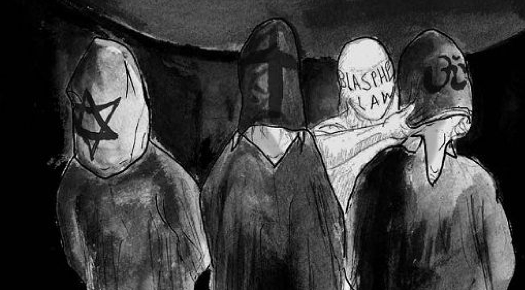
Earlier this month, there was an attempt to repeal New Zealand’s blasphemy law by including it in a Crimes Act Amendment Bill. In addition to all the other changes the Bill would introduce, it would nullify the blasphemy law. Prime Minister Bill English said there was no “great urgency about it.”
President of the Humanist Society of New Zealand, Sara Passmore, said the decision to keep the law was a "clear vote against human rights". “By refusing to remove the blasphemy law from our Crimes Act, the Government is saying we are not free to criticize and challenge all ideas. This decision was backwards, and not in line with international trends. We think people, not ideas, should be protected,” she added.
The publishing of any "blasphemous libel" is a crime in New Zealand under Section 123 of the Crimes Act 1961. New Zealand legislation includes ‘Blasphemous libel’:
(1) Everyone is liable to imprisonment for a term not exceeding 1 year who publishes any blasphemous libel.
(2) Whether any particular published matter is or is not a blasphemous libel is a question of fact.
(3) It is not an offence against this section to express in good faith and in decent language, or to attempt to establish by arguments used in good faith and conveyed in decent language, any opinion whatever on any religious subject.
(4) No one shall be prosecuted for an offence against this section without the leave of the Attorney-General, who before giving leave may make such inquiries as he or she thinks fit.
To date the only prosecution for blasphemous libel in New Zealand has been the case of John Glover, publisher of the newspaper The Maoriland Worker in 1922. The Crown laid a charge of blasphemous libel over the 12 October 1921 issue of The Maoriland Worker which included two poems by British poet Siegfried Sassoon. The alleged blasphemy was the closing lines of Sassoon's poem 'Stand-to: Good Friday Morning': O Jesus, send me a wound to-day, And I'll believe in Your bread and wine, And get my bloody old sins washed white! The jury returned a verdict of not guilty.
Anglican Archbishop and Primate Philip Richardson also said it was time to get rid of the arbitrary and archaic law. "My view is, God's bigger than needing to be defended by the Crimes Act," he said. There’s certainly no legitimate reason to keep this law on the books, especially in a country that is developed in all other areas.
Photo Credits: Dawn
